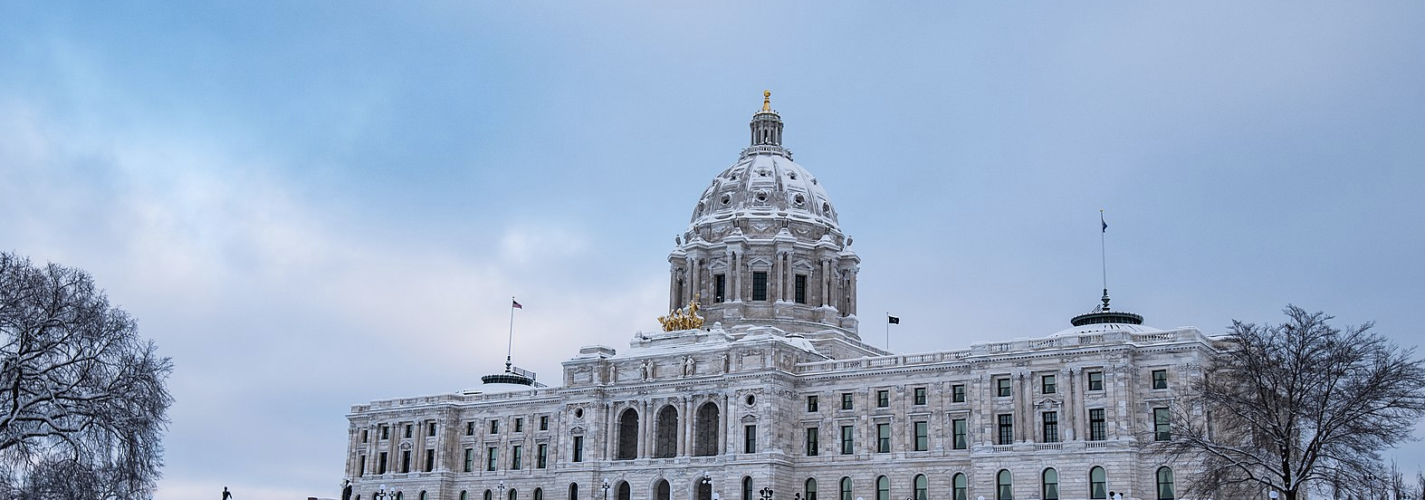A Big Session Lies Ahead for Kids. What Are We Working On This Year?
By Matt Shaver
With a new year comes a new session of the Minnesota Legislature! While things are just kicking off this week, we have been working nonstop to identify the issues most ripe for action to ensure all students have the supports and investments they need to thrive. Below, you’ll find a summary of our priorities. If you’d like to hear more, ask questions, and learn how to get involved, please join us January 10 for a virtual session kick-off with our team and key partners.
Here are the issues we’ll be focused on this session, as we aim to ensure the state budget surplus gets put to good use and as we navigate a brand new political make-up with one-party control:
1. A budget that works for kids
With an enormous state surplus and a party that campaigned on the promise of high quality education for all Minnesota students in control of the House, Senate, and Governor’s office, ensuring education funding is ample, impactful, and equitable should be a top priority—from early learning through post-secondary. We’ll be working to elevate the following issues:
- Making existing state funding streams more equitable and impactful—for example, removing the compensatory revenue cap to get funding into the schools that need it most
- Investing in universal access to school meals, to ensure no student has to worry about being hungry in class
- Leveraging the state budget surplus to invest in specific student needs, including: improving literacy instruction, building a diverse teacher pipeline, expanding mental health supports, increasing access to rigorous coursework, and supporting COVID recovery
- Rectifying the long-standing underfunding of special education and English Learner services
- Increasing investment in high-quality early learning for low-income families
2. Diverse and effective teachers
Students do better when they see themselves in the educators that instruct them. It’s that simple. We can, and must, do better to recruit and retain diverse and effective teachers through targeted improvements to licensing, preservation of pathways to teaching, and policies that retain and advance teachers in areas of shortage. Teacher shortages must also be addressed, from substitute teachers to critical fields such as special education. We’ll be working to improve policy in several areas:
- Making targeted improvements to teacher licensure, while maintaining clear pathways for candidates from non-traditional backgrounds
- Developing better data systems to provide accurate and actionable information on teacher shortages
- Providing more funding for innovative and targeted teacher preparation programs
- Improving and expanding existing policy focused on recruitment and retention, such as the Come Teach in Minnesota pilot
3. Strong foundations for college and career
Today in Minnesota, there are unacceptable disparities in who graduates ready for college and career—but there are many steps policymakers can take to address inequalities in education outcomes. From ensuring all students receive effective literacy instruction and supports, to addressing gaps in access to advanced coursework, there are several areas legislators should focus on this year, including:
- Incentivizing districts to automatically enroll students into rigorous courses, building off success in other states
- Improving how we use data to measure student progress and provide timely interventions, including the adoption of a 9th grade on-track indicator
- Improving literacy instruction, through Gov. Walz’s BOLD literacy plan and other targeted strategies
- Increasing college access by ensuring all students complete the FAFSA
4. Empowered students and families
Too often, historically underserved students and families face barriers to accessing the education they deserve. We need to do more to ensure agency and inclusion, giving families a meaningful seat at the table. EdAllies will continue to fight for:
- Advancing more effective discipline practices, and ending the use of suspension as a go-to practice for K-3 students
- Improving the K-12 tax credit to ensure families of all income levels can leverage it to access supplemental tutoring, enrichment, and more
- Ensuring the voices of historically underserved families are centered in in debates about charters and parent choice, and that policy change does not undermine access to high-quality, culturally relevant options that are working for low-income families and families of color
Ready to weigh in?
While priorities are shaping up quickly, there is still plenty of time to reach out to legislators and make sure your voice is heard. Nearly a third of lawmakers are completely new to the Capitol this year, making it a critical moment to build relationships, put key student-centered issues on the map, and ensure each and every legislator has an eye on education. You can find out who represents you here, and reach out with a call, meeting request, or email to let them know what matters most to you.
We’ll provide regular updates on the blog, social media, and to our email list, keeping you looped in on the issues above and others that bubble up through the committee process. With four K-12 committees and two higher education committees across the House and Senate, plus a children and families committee in the House, there will be plenty of bandwidth for issues to have their day. The stakes remain high so we hope you’ll follow along and stay ready to act.

